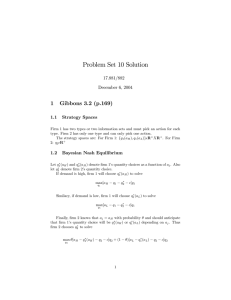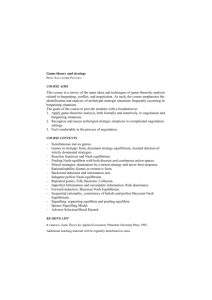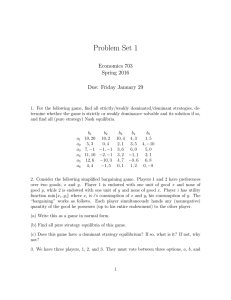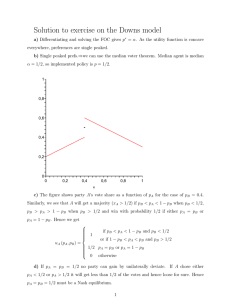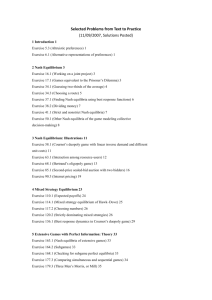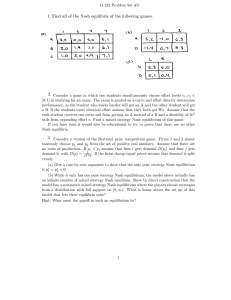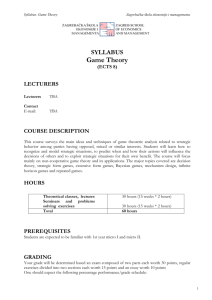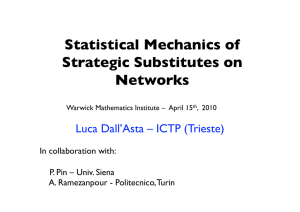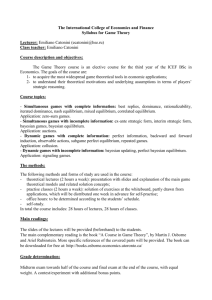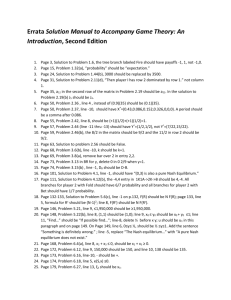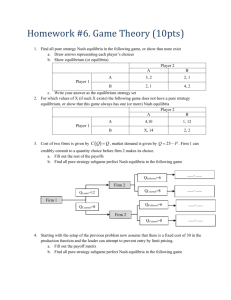1. Title of subject Internet Agent Economics 2. Subject code TIA1301
advertisement
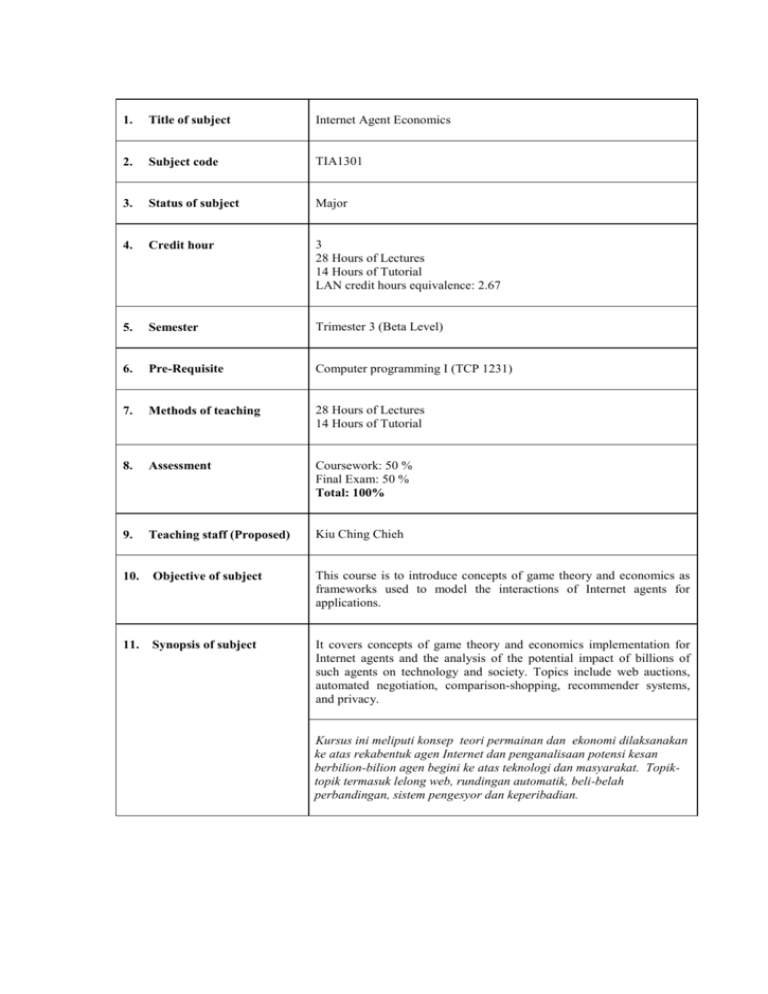
1. Title of subject Internet Agent Economics 2. Subject code TIA1301 3. Status of subject Major 4. Credit hour 3 28 Hours of Lectures 14 Hours of Tutorial LAN credit hours equivalence: 2.67 5. Semester Trimester 3 (Beta Level) 6. Pre-Requisite Computer programming I (TCP 1231) 7. Methods of teaching 28 Hours of Lectures 14 Hours of Tutorial 8. Assessment Coursework: 50 % Final Exam: 50 % Total: 100% 9. Teaching staff (Proposed) Kiu Ching Chieh 10. Objective of subject This course is to introduce concepts of game theory and economics as frameworks used to model the interactions of Internet agents for applications. 11. Synopsis of subject It covers concepts of game theory and economics implementation for Internet agents and the analysis of the potential impact of billions of such agents on technology and society. Topics include web auctions, automated negotiation, comparison-shopping, recommender systems, and privacy. Kursus ini meliputi konsep teori permainan dan ekonomi dilaksanakan ke atas rekabentuk agen Internet dan penganalisaan potensi kesan berbilion-bilion agen begini ke atas teknologi dan masyarakat. Topiktopik termasuk lelong web, rundingan automatik, beli-belah perbandingan, sistem pengesyor dan keperibadian. 12. By the end of the subject, students should be able to: Understand the concepts of non-cooperative game theory. Understand the strategies of strategic and extensive games to solve problem with perfect information and imperfection information. Understand the various game theoretical concepts and its application Understand how to solve various scenarios that are variants of known scenarios and devise algorithms to solve them. Know how to use game theoretical concepts in modeling and analyzing interactive internet agents, multi-agents system, auction and bargaining system. Learning Outcomes 13. Details of subject Topics Covered 1. 2. 3. 4. 5. 6. Introduction to Game Theory What is game theory?, What is game?, Game theory assumptions, Zero-sum game, Non-zero-sum game, Classification of games and solutions, Terminology and notation. Utility Theory Preferences, Utility representation, Lotteries, Expected utility, Von Neumann-Morgenstern utility functions, Risk aversion Introduction to Extensive Form and Strategic Form Games Elements of basic models, Extensive form, Perfect recall, Finite and infinite game, Informational categories, Strategic form, Classic examples of normal form and extensive form games, Converting extensive to strategic form, Several chance moves game, three players game Nash Equilibria, Dominance, Symmetry and Minimax Pure strategy, Mixed strategy, Behavior strategy, Elimination of Dominated Strategies, Strict dominance and weak dominance, pure strategy Nash equilibrium, strict Nash equilibrium, mixed strategy Nash equilibrium, symmetric game solution, minimax. Perfect Equilibria in Extensive Form Backward induction, Rollback equilibrium, Subgameperfect equilibrium, Critiques of backward induction and subgame perfect, Nash equilibrium in extensive game, perfect Bayesian equilibrium. Modeling Incomplete and Imperfect Information Static Bayesian games, dynamic Bayesian game, perfect Bayesian equilibria. Total Contact Hours Hours 2 2 4 8 8 4 28 14. Text References 1. Martin J. Osborne, An Introduction to Game Theory, Oxford University Press, 2004. 2. Martin J. Osborne and Ariel Rubinstein, A Course in Game Theory, Cambridge Mass, The MIT Press, 1993. 3. Fudenberg, Drew, and Jean Tirole. Game Theory. Cambridge Mass., MIT Press, 1999. 4. Avinash K. Dixit, Susan Skeath, Game of Strategy, W.W.Norton, 1999. 5. Prajit K. Dutta, Strategies and Games: Theory and Practice, Cambridge Mass., MIT Press, 1991. 6. Saul Stahl, A Gentle Introduction to Game Theory, American Mathematical Society, 1999.
